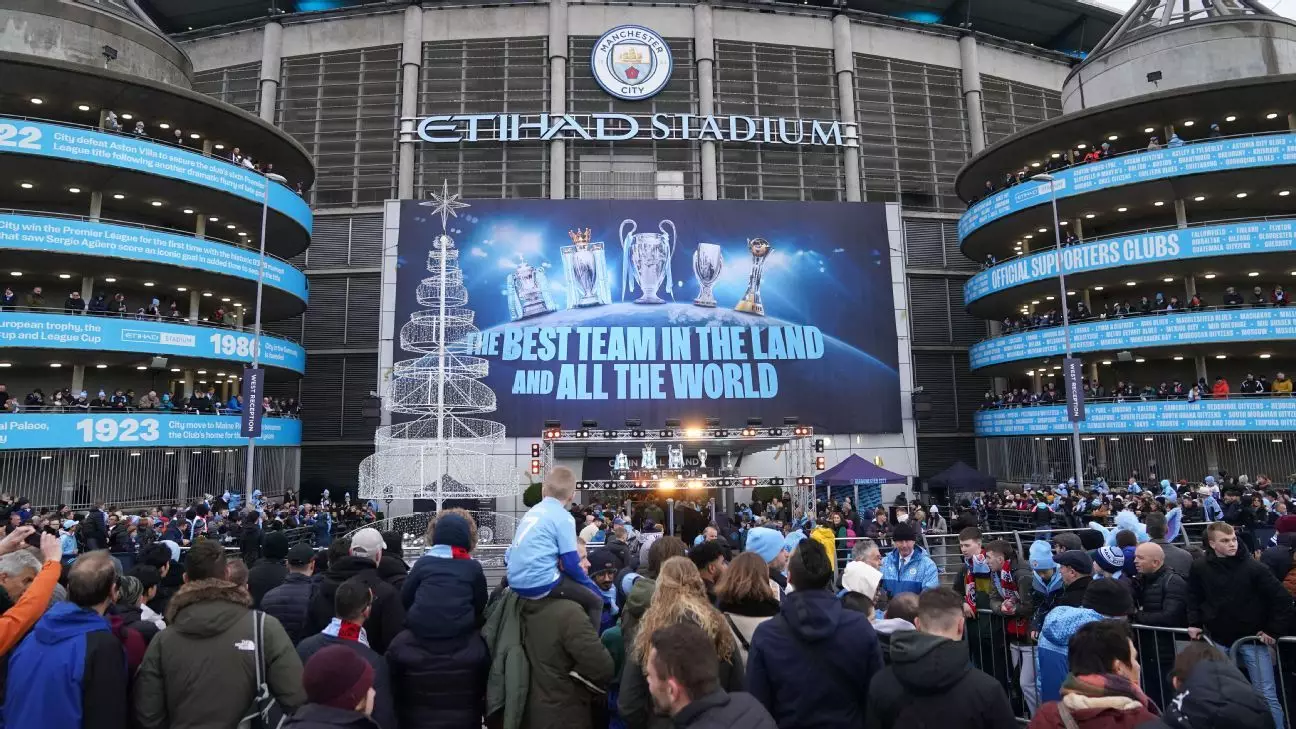The commencement of Manchester City’s independent hearing regarding their alleged 115 breaches of Premier League financial regulations marks a significant moment in sports history, aptly dubbed by British media as the “sports trial of the century.” Set to unfold over an estimated 10-week period, this high-stakes trial holds the potential to reshape the landscape of football governance, especially concerning financial integrity. City’s recent dominance in English football is under scrutiny, and with the prospect of severe penalties looming, both fans and detractors are keenly watching how this saga unfolds.
Since its acquisition by Sheikh Mansour’s Abu Dhabi United Group in 2008, Manchester City has enjoyed an unprecedented period of success, claiming numerous titles, including eight Premier League championships and a coveted Champions League trophy. However, their meteoric rise has been tainted by allegations of financial malpractice that date back nearly a decade. The charges range from inaccuracies in financial reporting to breaches of financial fair play regulations set forth by UEFA and the Premier League.
The allegations are not unfamiliar territory for City; they previously faced a two-year UEFA Champions League ban in 2020 for overstating sponsorship revenue, a ruling they successfully appealed. This history of scrutiny only intensifies the anticipation surrounding the current hearing, as the club strives to maintain its reputation amid growing concerns regarding financial accountability in modern football.
The implications of this hearing are expansive. Should Manchester City be found guilty of any or all of the alleged breaches, they face a plethora of potential sanctions ranging from hefty fines to severe penalties like points deductions, or even relegation from the Premier League. Such outcomes would not only affect the club’s status but also stir controversy regarding the legitimacy of their recent achievements. Football fans across the spectrum will inevitably feel the ripples of this trial, as it poses fundamental questions about the enforcement of financial regulations within the sport.
A guilty verdict could cast a long shadow over City’s recent successes, leading many to label their accomplishments as tainted. Conversely, if the club is exonerated, it could invigorate a defense of regulatory frameworks, reinforcing the notion that financial governance in football can be navigated responsibly.
Manager Pep Guardiola remains steadfast in his belief in the club’s innocence, emphasizing the principle that individuals are presumed innocent until proven guilty. His comments reflect a broader sentiment within the team, suggesting a united front in the face of adversity. “It starts soon and then [hopefully] finishes soon,” Guardiola stated. This anticipation is shared not just by fans and players but also by analysts and stakeholders keen to understand how governance will evolve in the wake of this hearing.
Guardiola’s presence in the media underscores the duality of pressure faced by the team. On one hand, they must focus on their pursuit of a fifth consecutive Premier League title, while on the other, they contend with the weight of public opinion and speculation surrounding the ongoing investigation.
Regardless of the outcome, the Manchester City trial is emblematic of a broader conversation about financial regulations in football. The recent deductions imposed on clubs like Everton and Nottingham Forest for breaching Profit and Sustainability rules reflect a growing trend toward accountability in the league. However, the situation with City exposes the complexities involved when evaluating a club’s financial practices, particularly in establishing a consistent application of regulations across the board.
Should City appeal the verdict, as is likely regardless of the outcome, the saga may extend well into the summer of 2025, prolonging the uncertainty enveloping the Premier League. The outcome of this case, thus, will not only impact Manchester City but could also set precedents for how financial fair play violations are enforced across the league.
The upcoming hearing into Manchester City’s alleged financial breaches is much more than a mere investigation; it represents a watershed moment for football governance. As the trial unfolds, the eyes of the sporting world will remain fixed on the developments, eager to witness how this monumental case will shape the future of financial regulations in English football. Whether it blazes a trail toward greater accountability or reveals significant flaws in the current system will determine the legacy of this trial for years to come.


Leave a Reply